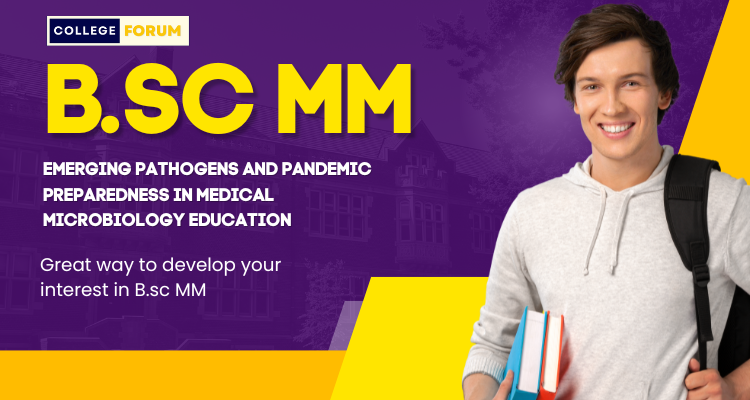In the wake of recent global health crises, the importance of comprehensive education in medical microbiology has never been more pronounced. The B.Sc. Medical Microbiology course in Dehradun is at the forefront of adapting its curriculum to meet the challenges posed by emerging pathogens and the threat of pandemics. As the college forum continues to highlight, Dehradun’s esteemed institutions are not just educational centers but pivotal platforms in training the next generation of microbiologists, equipped to tackle global health emergencies.
Evolution of Curriculum to Address Emerging Threats
The dynamic nature of pathogens, coupled with their potential to cause widespread illness, necessitates a curriculum that is both robust and adaptive. Colleges in Dehradun offering the B.Sc. Medical Microbiology course have integrated modules that focus specifically on emerging infectious diseases, their pathogenesis, and transmission dynamics. This inclusion ensures that students are not only versed in the historical context of microbiology but are also abreast of contemporary and potential future microbial threats.
Emphasis on Practical, Hands-On Learning
Understanding that theoretical knowledge must be complemented by practical skills, these programs place a strong emphasis on laboratory competencies. State-of-the-art labs equipped with modern diagnostic tools allow students to simulate real-world outbreak scenarios, fostering a hands-on approach to learning. Through these exercises, students gain invaluable experience in identifying, isolating, and characterizing pathogens, skills critical in the event of an actual public health emergency.
Incorporating Pandemic Preparedness and Response
Recognizing the critical role microbiologists play in pandemic response, the curriculum extends beyond pathogen study to include comprehensive training in outbreak investigation, disease surveillance, and public health response strategies. Students are taught how to use epidemiological data to inform public health decisions, a key component in controlling and preventing the spread of infectious diseases.
Interdisciplinary Approach
The interconnectedness of global health challenges necessitates an interdisciplinary approach, and the B.Sc. Medical Microbiology course in Dehradun embodies this principle. By incorporating elements of public health policy, ethics, and communication, students are prepared to work collaboratively with professionals from various sectors. This holistic education ensures graduates are well-rounded, capable of contributing to multifaceted pandemic preparedness and response efforts.
Research Opportunities
Encouraging a culture of research and innovation, these programs offer students opportunities to engage in cutting-edge projects related to emerging pathogens and their impact on public health. This not only enriches the student’s learning experience but also contributes to the global body of knowledge in tackling infectious diseases.
Conclusion
The B.Sc. Medical Microbiology course in Dehradun is leading the way in preparing students to face the challenges of emerging pathogens and pandemics. By evolving its curriculum, emphasizing practical skills, and fostering an interdisciplinary and research-oriented approach, these institutions are ensuring that graduates are not just microbiologists, but guardians of global public health. The college forum remains an indispensable resource, showcasing the best colleges in Dehradun that are committed to equipping students with the knowledge and skills to make a significant impact in the field of medical microbiology and beyond.







